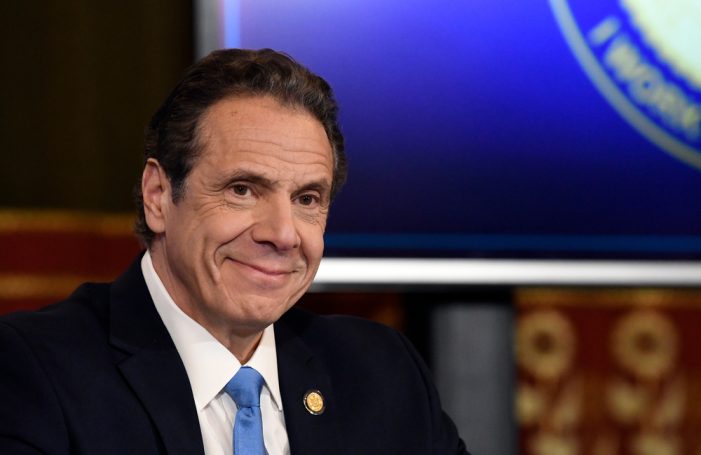By: Esther Claudette Gittens | Editorial credit: Hans Pennink / Shutterstock.com
Andrew Cuomo’s attempt to reenter New York politics by running for mayor in 2025 has sparked intense scrutiny. His campaign unfolds amid lingering questions around corruption, moral breaches, and public trust. This article analyzes the complexity of Cuomo’s ethical baggage—what it reveals, and whether redemption is possible.
- The Shadow of Abuse and Resignation
In August 2021, Cuomo resigned as governor following a damning report by Attorney General Letitia James, which found that he sexually harassed at least 11 women and retaliated against those who came forward. Several district attorneys then launched investigations into his conduct, though no criminal charges were filed.
Moral Reckoning:
Holding elected office means accountability. Cuomo’s resignation represented the legal and ethical adjudication of his conduct, yet years later, his return raises the question: Can—or should—a politician regain moral legitimacy after such profound breaches?
- The Nursing Home Data Scandal: Public Trust Undermined
Cuomo’s administration came under fire for allegedly underreporting COVID-19 deaths in nursing homes by nearly half. Internal communications—leaked via AG James’s report—revealed deliberate suppression of data to avoid political fallout. A federal investigation ensued, though ultimately no charges were filed.
Ethical Implications:
These actions suggest doing politics at the expense of truth and vulnerable populations. Whether politically illegal or not, they reflect a serious moral lapse in leadership.
- Past Corruption and The Illusion of Reform
Cuomo’s record includes controversies tied to the Buffalo Billion economic development project. Though Cuomo himself was not indicted, his former aide, Joe Percoco, was convicted—with convictions later overturned by the Supreme Court. Additionally, Cuomo disbanded the Moreland Commission—a state corruption watchdog—before it could investigate powerful allies.
Corruption or Controlled Exposure?
Eliminating the watchdog suggests political self-preservation eclipsed accountability. Even without direct criminal culpability, this undercuts his moral standing.
- A Campaign Fueled by Arrogance, Not Accountability
Despite this track record, Cuomo steps into the 2025 mayoral race as a frontrunner. A recent New Yorker profile reflects on how scandal-riddled politicians like Cuomo paradoxically maintain power through name recognition and nostalgia.
Critics argue his campaign lacks ethical grounding. A New Republic critique labels Cuomo’s comeback as driven more by arrogance and political convenience than principled leadership.
- Ongoing Investigations and Emerging Allegations
Cuomo now faces renewed legal peril. The DOJ is investigating whether he lied to Congress about the state’s handling of nursing home deaths, as referred by House Republicans. Politico
Meanwhile, former aide Howard Glaser has publicly accused Cuomo of cultivating abusive behavior and ties to Jeffrey Epstein—a denouncement Cuomo’s campaign calls opportunistic.
Current Shadows:
These developments underscore that the moral and ethical past isn’t fully closed—ongoing investigations may further shake his credibility.
- Political Endorsements Amid Moral Decline
Despite these red flags, Cuomo retains Democratic establishment support and significant polling strength. As The Atlantic observes, American politics increasingly tolerates scandal-tainted comebacks.
Yet editorial voices resist this normalization. A Times Union editorial urged voters not to rank Cuomo, citing “ethics scandals, manipulation of oversight bodies, and mishandling of COVID data” as disqualifying factors.
Conclusion: Can Cuomo Reemerge with Moral Authority?
| Ethical Breach | Cuomo’s Record |
|---|---|
| Sexual harassment & toxic workplace | Resigned under pressure; no criminal charges |
| COVID nursing home data cover-up | Federal investigation ongoing |
| Corruption investigations & watchdog manipulation | Associated aides convicted; oversight curtailed |
| Disconnection from public accountability | Establishment support persists |
Cuomo presents himself as the stable, experienced candidate. However, leadership requires more than governance agility; it requires moral coherence. Cuomo’s controversies—sexual misconduct, data suppression, suppression of oversight—have not been publicly reconciled. His campaign risks appearing opportunistic rather than redemptive.
New Yorkers face a tough question: can a politician with a history of moral lapses regain public trust? For Cuomo, the answer hinges not on nostalgia, but whether he can demonstrate accountability, transparency, and the humility to earn back moral authority.

